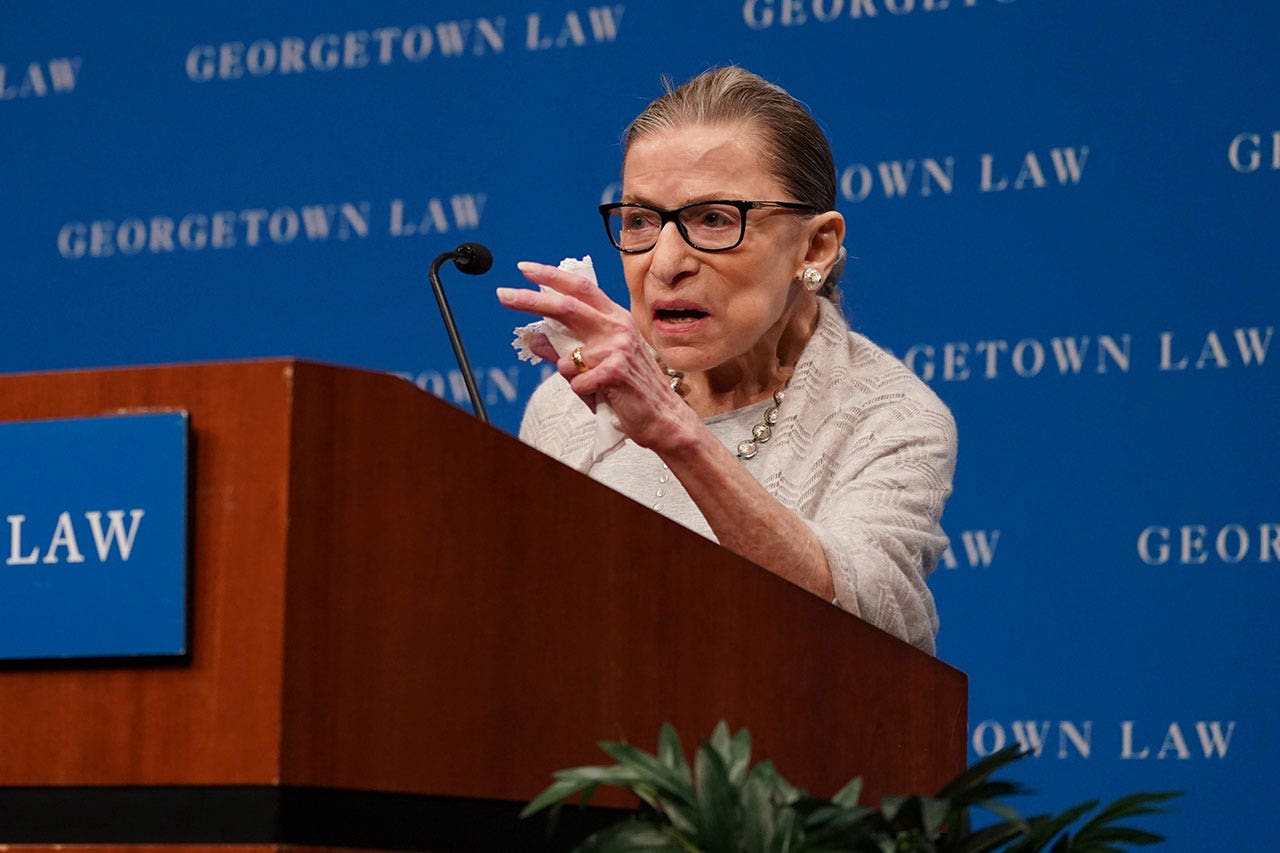Weatherman2020
Diamond Member
She was pro abortion but she knew the RvW ruling was not a good one.
Ginsburg warned against major judicial shifts in a 1992 lecture at New York University, citing Roe as an example.
“Measured motions seem to me right, in the main, for constitutional as well as common law adjudication,” she argued. “Doctrinal limbs too swiftly shaped, experience teaches, may prove unstable. The most prominent example in recent decades is Roe v. Wade.”
Ginsburg noted that Roe struck down far more than the specific Texas criminal abortion statute at issue in the case.
“Suppose the court had stopped there, rightly declaring unconstitutional the most extreme brand of law in the nation, and had not gone on, as the court did in Roe, to fashion a regime blanketing the subject, a set of rules that displaced virtually every state law then in force,” she said. “A less encompassing Roe, one that merely struck down the extreme Texas law and went no further on that day, I believe and will summarize why, might have served to reduce rather than to fuel controversy.” . . .
Ginsburg went on to contrast the court’s landmark decision in Roe with a slew of decisions from 1971 to 1982 in which the court struck down “a series of state and federal laws that differentiated explicitly on the basis of sex.”
Rather than creating a new philosophy of law and imposing it on the nation immediately, “the court, in effect, opened a dialogue with the political branches of government.”
“In essence, the court instructed Congress and state legislatures: rethink ancient positions on these questions,” Ginsburg noted. “The ball, one might say, was tossed by the justices back into the legislators’ court, where the political forces of the day could operate.”

 www.foxnews.com
www.foxnews.com
Ginsburg warned against major judicial shifts in a 1992 lecture at New York University, citing Roe as an example.
“Measured motions seem to me right, in the main, for constitutional as well as common law adjudication,” she argued. “Doctrinal limbs too swiftly shaped, experience teaches, may prove unstable. The most prominent example in recent decades is Roe v. Wade.”
Ginsburg noted that Roe struck down far more than the specific Texas criminal abortion statute at issue in the case.
“Suppose the court had stopped there, rightly declaring unconstitutional the most extreme brand of law in the nation, and had not gone on, as the court did in Roe, to fashion a regime blanketing the subject, a set of rules that displaced virtually every state law then in force,” she said. “A less encompassing Roe, one that merely struck down the extreme Texas law and went no further on that day, I believe and will summarize why, might have served to reduce rather than to fuel controversy.” . . .
Ginsburg went on to contrast the court’s landmark decision in Roe with a slew of decisions from 1971 to 1982 in which the court struck down “a series of state and federal laws that differentiated explicitly on the basis of sex.”
Rather than creating a new philosophy of law and imposing it on the nation immediately, “the court, in effect, opened a dialogue with the political branches of government.”
“In essence, the court instructed Congress and state legislatures: rethink ancient positions on these questions,” Ginsburg noted. “The ball, one might say, was tossed by the justices back into the legislators’ court, where the political forces of the day could operate.”

Supreme Court leak confirms Ruth Bader Ginsburg's prescient warning about Roe v. Wade
The unprecedented leak of Supreme Court Justice Samuel Alito's draft opinion in a key case striking down Roe v. Wade (1973) has sparked a heated debate, perhaps drawing new attention to the late Justice Ruth Bader Ginsburg's opinion on the key abortion precedent.